Countdown:
Abstract submission due:
February 15, 2026 (Extended)
Abstract acceptance due:
March 15, 2026 (Extended)
Conference date:
April 17-19, 2026
-
General Chair
Peixin Dong
-
Email:
-
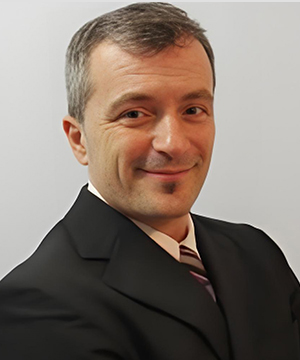
Carlos M. Travieso-González: Professor, Signals and Communications Department (DSC), Institute for Technological Development and Innovation in Communications (IDeTIC), University of Las Palmas de Gran Canaria (ULPGC), Las Palmas de Gran Canaria, Spain.
Research field: Biometrics; Biomedical Signals; Data Mining; Classification System; Signal and Image Processing; Environmental Intelligence.
Prof. Carlos M. Travieso-González received the M.Sc. degree in 1997 in Telecommunication Engineering at Polytechnic University of Catalonia (UPC), Spain; and Ph.D. degree in 2002 at University of Las Palmas de Gran Canaria (ULPGC-Spain). He is currently a Full Professor in signal processing and pattern recognition and the Head of the Signals and Communications Department, ULPGC, teaching on subjects on signal processing and learning theory, since 2001. He has researched in more than 50 International and Spanish Research Projects, some of them as head researcher. He is co-author of 4 books, inventor on 7 Spanish patents, co-editor in 24 Proceedings Book, Guest Editor for 8 international journals and up to 22 book chapters and 72 JCR-ISI indexed journal papers. He has over 450 papers published in international journals and conferences. He has published a patent and two more under revisions. He has been supervisor on 8 PhD Thesis (and 12 more in process), and 140 Master Thesis. He is/was evaluator in H2020 (EU), ANR (France), MRC (UK), ANECA (Spain), DAAD (Germany), Argetinian Government, Colombian Institutions, and Academics positions (EEUU, Slovenia, Spain). Too, he has been reviewer in different indexed international journals (>65) and TCP member in international conferences (>200), since 2001. He has been General Chair in APPIS 2021/2020/2019/2018, IEEE-IWOBI 2020/2019/2018/2017/2015/2014, InnoEducaTIC 2017/2014, IEEE-INES 2013, NoLISP 2011, JRBP 2012 and IEEE-ICCST 2005 Co-Chair. He won award "Catedra Telefonica" in editions 2017, 2018 and 2019 in Transfer Technology Modality. He was Vice-Dean from 2004 to 2010 and from 2013 to 2017 in Higher Technical School of Telecommunication Engineers in ULPGC.
-
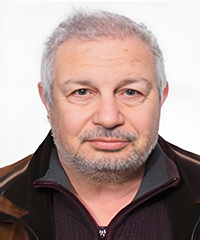
Dimitrios A. Karras: Associate Professor, University of Athens (NKUA), Greece.
Research field: Intelligent Systems; Machine Learning; Intelligent Distributed and Multiagent Systems; Pattern Recognition; Communications and Cybersecurity; Image/signal Processing and Systems; Biomedical Systems.
Assoc. Prof. Dr. Dimitrios A. Karras received his Diploma and M.Sc. Degree in Electrical and Electronic Engineering from the National Technical University of Athens (NTUA), Greece in 1985 and the Ph.D in Electrical Engineering, NTUA, Greece in 1995, with honors. During 1990-2004 he collaborated as visiting professor and researcher with several universities and research institutes in Greece and Heidelberg, Germany (DKFZ). During 2004-2018 he has been with the Sterea Hellas Institute of Technology, Automation Dept., Greece as assoc. prof. in Digital Systems and Signal Processing, as well as visiting prof. of Hellenic Open University, Dept. Informatics in Communication Systems (2002-2010). Since 1/2019 is Associate Prof. in Digital and Intelligent Systems & Signal Processing, in National & Kapodistrian University of Athens, Greece, School of Science, Dept. General as well as adjunct Assoc. Prof. Dr. with the School of Basic Sciences, BIHER University, Chennai, India, as well as with the GLA university, Mathura, India and EPOKA & CIT universities, Computer Engineering Dept., Tirana. He has published more than 80 research refereed journal papers in intelligent and distributed/multiagent systems, pattern recognition, image/signal processing and neural networks as well as in bioinformatics and more than 185 research papers in International refereed scientific Conferences. His research interests span the fields of intelligent & distributed systems, multiagent systems, pattern recognition and computational intelligence, image & signal processing/systems, biomedical systems, communications and networking as well as security and sustainability applications. He has served as program committee member as well as program/general chair at several international workshops and conferences in signal, image, communication and automation systems. He has been cited in more than 2500 research papers, and his H/G-indices are 21/51 (Google Scholar) and his Erdos number is 5. His RG score is 31.94, in the highest 10% of scientific researchers.
-
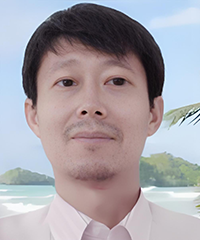
Alan Wang: Associate Professor, University of Auckland, New Zealand.
Research field: Bioengineering; Signal Processing; Data Informatics; Machine Learning; Biomedical Statistics and Simulation.
Alan Wang is a principal investigator and Associate Professor at University of Auckland. He has more than ten years of research experience in bioengineering informatics and integrated medicine, especially in advancing the role of medical informatics in health care. He has developed advanced data analytics methods for intelligent health and personalized diagnosis and prognosis based on signal processing and machine learning theories. He has experience analyzing huge cohorts of data with applications of early diagnosis, disease understanding, and effective treatment of patients with different disorders. He serves as an Editorial Board Member and an Active Reviewer for several international journals.
-
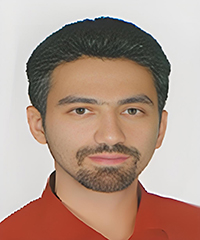
Mehdi Gheisari: Professor, Islamic Azad University, Iran.
Research field: Privacy Protection; Transformative Power; Artificial Neural Network; Autonomous Vehicles; Control Plane; Current Difference; Dependability; Differential Protection; Differential Scheme; Empirical Mode Decomposition; Fast Fourier Transform; Gradient Difference.
Mehdi Gheisari received the B.S. degree in computer engineering from Shiraz University, Shiraz, Iran, and the M.Sc. degree in computer engineering from Science and Research University, Tehran, Iran. He is currently working toward the Ph.D. degree with the School of Computer Science and Educational Software, SUSTECH, Shenzhen, China. He has taught in variety of Universities as a Professor of courses like data base and operating system. Since 2007, he has been with Karaj University, Karaj, Iran, ShamsiPour College, Bahonar College, Damavand branch, Parand Branch, Islamic Azad University, Tehran, Iran. He has authored or coauthored 13 research articles in journals and 29 conference papers, one book and two patents contributed as author/co-author. His research interests include wireless sensor networks (monitoring, routing, event detection), semantic web and related technologies (RDF, ontologies), and programming (Net). He is a Member of Geo-Information and Communication Technology Society, Young Researchers Club of IAU, and an Associative Member of the Universal Association of computer of Computer & Electronics Engineers. He is alos an Associate Editor and Reviewer of ISI journal, such as the Indian Journal of Science and Technology, Reviewer of the International Journal of Wireless Information Networks, WSEAS journals in the field of semantic web and sensor networks, International Journal of Computer and Information Technology, and an Expert Reviewer and the Guest Editor of the Indian Journal of Innovations and Developments.
-
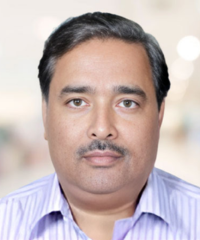
Bechan Sharma: Professor, University of Allahabad, India.
Research field: Molecular Biology; Virology; Tropical Disease Research; Biochemical Toxicology; Drug Development; Free Radical Biology; Phytomedicine.
Dr. B. Sharma working as a Professor, Biochemistry Department of Allahabad University, India has research interests in Molecular Biology & Toxicology. He has completed his Postdoctoral Fellow in HIV-1 from University of Medicine and Dentistry School, New Jersey, USA and PhD in Biochemistry from B.H.U.-Varanasi, U.P & CDRI-Lucknow, India. He has twenty five years of teaching-research experience, numbers of Awards & 146 research publications, 2 Books, 12 chapters, 1 US patent and supervised 10 Ph.D. students. He is Chief Editor/ Associate Editor of 89 & reviewer for 137 International journals. He has been visiting scientist in USA, Italy, France, UK, The Netherlands, Thailand, Germany, Iran. He is a member of American Chemical Society, USA, and American Association for the Advancement of Science, USA, and International Forum for Public Health, Shanghai, China, and life member of Society of Biological Chemists, India, Academy of Environmental Biology, India, and Indian Science Congress Association, India. He is also serving as member of many scientific committees.
-
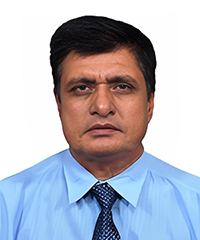
Santosh Kumar Mishra: Independent Researcher, S.N.D.T. Women's University, India (Retired).
Research field: Demography; Sustainable Development; Health; and Allied Subjects.
Dr. Santosh Kumar Mishra is an Independent Researcher (Scholar), having retired from Population Education Resource Centre, Department of Lifelong Learning & Extension, S.N.D.T. Women's University, Mumbai, India. He underwent training in demography, with Government of India Fellowship, during 1986-1987. His research areas are demography, sustainable development, health, and allied subjects. He has authored (some co-authored) 6 booklets, 4 books, 32 book chapters, 111 journal articles, 2 monographs, 7 research studies, & 126 papers for national & international conferences (some with bursary). He has been awarded with Certificate of Excellence in Reviewing for 2017, 2018, 2021 & 2022. Besides contributing to over 221 e-discussions, I served as Judge for the 2021 IHA Health Literacy Awards. After retirement, he presently involved, in his individual capacity, as Independent Researcher (Scholar) with academic activities, such as authorship, editorship, etc. He involved as (external) collaborator for over 124 international developmental agencies including Ecosystem based Adaptation for food security in Africa Assembly, Kenya; Office of the United Nations High Commissioner for Human Rights, Switzerland; Intergovernmental Science-Policy Platform on Biodiversity and Ecosystem Services, Germany; International Knowledge Network of Women in Politics, Sweden; and Food and Agriculture Organization of the United Nations, Italy.
-
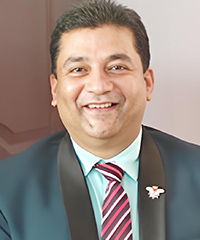
Ramendra Pati Pandey: Associate Professor, UPES University, India.
Research field: Immunology and Infectious Diseases; Antimicrobial Resistance; Drug Discovery and Development.
Dr Ramendra Pati Pandey was a Postdoctoral Fellow at the Department of Medicine-InCor/HC-FMUSP, University of Sao Paulo, Brazil. He was a Research Associate at the Translational Health Science and Technology Institute, India. And now, he is an Associate Professor in the School of Health Sciences and Technology (SoHST), UPES University, Dehradun, Uttarakhand, India. He has been awarded with the Department of Science and Technology, Government of India Young Scientist Award (2010), Indian Immunology Society Young Scientist Award (2013), European Federation of Immunological Societies (EFIS) Travel Award (2012) , British Society of Immunology Travel Award (2012) , Federation of Immunological Societies of Asia Oceania Young Scientist Award (2012 and 2015) , American Association of Immunologists Travel Award (2013) , International Union of Immunological Societies Travel Award (2013),and, The Federation of Clinical Immunology Societies Travel Award (2017). Recently he has been elected as a member of the National Academy of Sciences, India (2021), and selected as an Associate Member of the esteemed Academy "International Academy of Physical Sciences, Prayagraj (2022), Elected as a member of the National Academy of Medical Sciences (2022), Elected as a member of the National Academy of Biological Sciences (2023), National Environmental Science Academy (2023), Sigma Xi The Scientific Research Honor Society (2023).
-
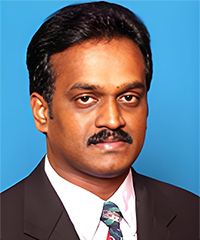
Sasidharan Sreenivasan: Associate Professor, Universiti Sains Malaysia, Malaysia.
Research field: Medicinal Plants; Mirna; Nanoparticle; Natural Products; Health and Disease Management; Toxicity Study.
Sasidharan Sreenivasan obtained his Ph. D. in 2007 from Universiti Sains Malaysia, Malaysia. He was served as the Deputy Director at Institute for Research in Molecular Medicine, Universiti Sains Malaysia from 2019 till 2021. He has over 220 publications with a total impact factor of > 250 (With more than 6589 citations in Scopus and h-Index = 42), published 16 chapters in book with international publishers, as well as Keynote, Invited Speaker and Chair of International & National Congresses. Has been serving as an Editor, Editorial Board Member, reviewer of international journals and evaluator for national and international grants. He has been recognized nationally and internationally as an expert in Pharmacognosy, Pharmacology, and anticancer studies, especially those that involve the pharmacological activity of medicinal plants. He was selected as a Top Research Scientists Malaysia (TRSM) by the Academy of Sciences Malaysia (ASM) in the year of 2022. In 2020, 2021, 2022, and 2023, he was figured among the top two percent (2%) scientists in a global list compiled by the prestigious Standford University from the United States of America. He reviewed more than 574 (Publoans) manuscripts for international journals. In 2019, he was placed in the top 1% of reviewers in Pharmacology and Toxicology, Clinical Medicine, and Cross-Field on Publons global reviewer database, United States of America. His research interests include medicinal plants, miRNA, nanoparticle and their role in Health and Disease Management, particularly natural products and nanoparticles (Green Carbon Dots) based antimicrobial, antioxidant, and anticancer agent development and toxicity study in cellular, genomic and animal model.
-

Oon Chern Ein: Associate Professor, Universiti Sains Malaysia, Malaysia.
Research field: Molecular Oncology; Sirtuin; Notch Signalling; Tumour Angiogenesis; Drug Discovery, Cancer-Targeted Therapies; Bioengineering Solutions.
Associate Professor Dr. Oon Chern Ein is dedicated to advancing innovative cancer therapies. She earned her BSc (First Class Hons) in Biotechnology from Universiti Kebangsaan Malaysia and pursued her DPhil in Medical Oncology at the University of Oxford, United Kingdom. Following this, she trained as a postdoctoral fellow at Karolinska Institutet, Sweden. She has served as a lecturer at Universiti Sains Malaysia since 2013. Chern's work in molecular therapeutics has earned her numerous prestigious awards, including the L'Oreal-UNESCO For Women in Science National Fellowship (2015), the Women of the Future Awards (South East Asia), and the Malaysian National Young Scientist Award (2018). She was further recognized with the Promising Academician Award and Excellent Service Award by the Malaysian Ministry of Higher Education (2019), alongside the British Council Study UK Alumni Award (Professional Achievement Category) and MINDS Women Scientist Award in 2020. Most recently, she received the Singapore Academies-ASEAN Fellowship from the Singapore National Research Foundation to train in drug discovery at A*STAR Singapore to strengthen her industrial insights. Her multidisciplinary research encompasses drug discovery, cancer-targeted therapies, and bioengineering solutions through collaborations with industry partners. She holds two granted patents in Malaysia (MY-203445-A, MY-199524-A) for small molecule inhibitors targeting anti-cancer and anti-angiogenesis pathways. As a member of the Global Young Academy, Chern actively champions female empowerment and education for all. Chern's research continues to bridge academia and industry, striving to transform cancer therapy through novel therapeutic strategies.
-
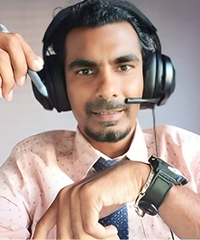
Prakash V. A. K. Ramdass: Professor, St. George's University, Grenada.
Research field: Endometriosis; Polycystic Ovary Syndrome (PCOS); Irritable Bowel Syndrome (IBS); Innovative Application of Artificial Intelligence (AI) in Healthcare to Improve Diagnostics; Epidemiology; Patient Outcomes.
Prakash V.A.K. Ramdass, MD, MPH, is a dedicated physician, epidemiologist, and academic with a robust background in clinical medicine and public health research. He earned his Doctor of Medicine (MD) degree from the University of Guyana School of Medicine and a Master of Public Health (MPH) in Chronic Disease Epidemiology from Yale University School of Public Health. As an educator, he is passionate about shaping the next generation of health professionals. He holds a faculty position where he teaches Clinical Epidemiology to second-year medical students and instructs MPH students in Public Health Research Methods. Dr. Ramdass’s primary academic and professional passion lies in research and advanced data analysis. His specific research interests are focused on several key areas, including endometriosis, polycystic ovary syndrome (PCOS), irritable bowel syndrome (IBS), and the innovative application of artificial intelligence (AI) in healthcare to improve diagnostics, epidemiology, and patient outcomes. He applies his advanced epidemiological and biostatistical skills to investigate and address these complex public health and clinical challenges.
-
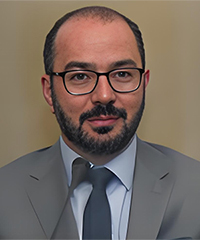
Orestis Ioannidis: Assistant Professor, Aristotle University of Thessaloniki, Greece.
Research field: Surgery, Nutrition, Infections, Laparoscopy, Oncology.
Dr. Orestis Ioannidis is an Assistant Professor of Surgery at the Medical School of Aristotle University of Thessaloniki. He earned his medical degree from the same institution in 2005. He went on to complete two master's degrees—one in Medical Research Methodology (2008) from Aristotle University, and another in Surgery of the Liver, Biliary Tree, and Pancreas (2016) from Democritus University of Thrace. In 2014, Dr. Ioannidis was awarded a PhD from Aristotle University of Thessaloniki. A practicing General Surgeon, he has a strong clinical and academic focus on laparoscopic surgery, surgical oncology, surgical infections, acute care surgery, perioperative nutrition, ERAS (Enhanced Recovery After Surgery), and vascular access. He is a fellow of several prestigious surgical societies, including EAES, ESSO, EPC, ESCP, and ACS. Dr. Ioannidis is an accomplished researcher, having authored over 180 scientific publications, accumulating more than 3,000 citations and a Google Scholar H-index of 45.